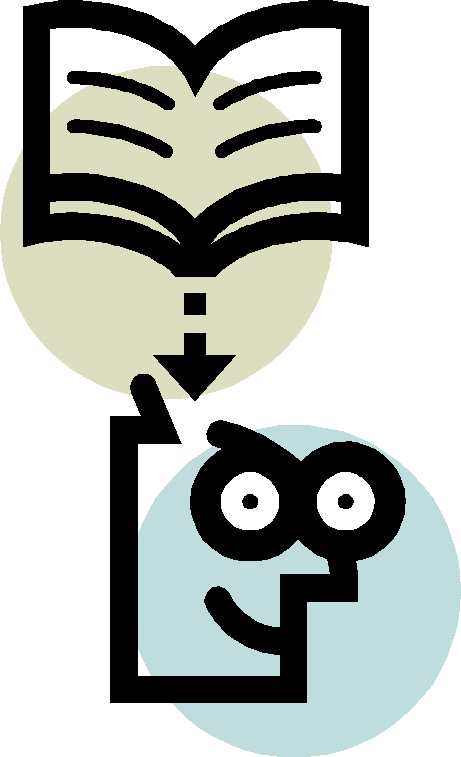
- •Учреждение образования
- •Часть II: конспект лекций; тренировочные задания и тесты по разделам; тексты для чтения и перевода; блоки контроля навыков и умений.
- •Содержание
- •Введение
- •Часть I:
- •Часть II:
- •Часть 1 пояснительная записка основные цели и задачи изучения дисцилины
- •Содержание учебной дисциплины
- •Методические указания по организации самостоятельной работы
- •Работа над лексикой
- •О пользовании словарем
- •О необходимости определения части речи незнакомого слова
- •Работа над грамматикой
- •Работа над текстом
- •Подготовка к зачёту и экзамену
- •Методические материалы по дисциплине основные учебники, учебные пособия, методические разработки
- •Дополнительная литература
- •Часть II
- •1. Модуль социального общения
- •1.1. Подмодуль социально-бытового общения Учебный блок 1.1.1
- •Инструкция к работе
- •Имя существительное (The Noun)
- •Классификация существительных
- •Левое определение, выраженное существительным
- •Артикль
- •Неопределенный артикль
- •Определенный артикль а) перед нарицательными существительными
- •Б) перед именами собственными
- •Отсутствие артикля
- •Местоимение
- •1, 2, 3. Личные, притяжательные и возвратно-усилительные местоимения.
- •8. Количественные местоимения
- •9. Неопределенные местоимения.
- •Числительное
- •Количественные числительные
- •Порядковые числительные
- •Дробные числительные
- •Чтение хронологических дат
- •Глагол to be
- •Глагол to have
- •Имя прилагательное
- •Префиксы
- •Суффиксы
- •От основы существительного:
- •От основы глагола:
- •Степени сравнения прилагательных
- •Сравнительные конструкции
- •Наречие
- •Наречия места
- •Наречия времени
- •Наречия образа действия
- •Наречия меры и степени
- •Формы наречий
- •Степени сравнения наречий
- •Текст “About my family and myself”
- •Текст “My Hobby”
- •Текст “Appearance”
- •Учебный блок 1.1.2
- •Инструкция к работе
- •Глагол (The Verb)
- •Четыре основные формы глагола
- •Настоящее неопределенное время (Present Indefinite/Simple)
- •Прошедшее неопределенное время (Past Indefinite/ Simple)
- •Будущее простое время (Future Simple/Indefinite)
- •Настоящее длительное время (Present Continuous)
- •Прошедшее длительное время (Past Continuous)
- •Будущее длительное время (Future Continuous)
- •Учебный блок 1.2.1
- •Инструкция к работе
- •Настоящее совершенное время (Present Perfect)
- •Прошедшее совершенное время (Past Perfect)
- •Будущее совершенное время (Future Perfect)
- •Настоящее совершенное длительное время (Present Perfect Continuous)
- •Прошедшее совершенное длительное время (Past Perfect Continuous)
- •Будущее совершенное длительное время (Future Perfect Continuous)
- •Modal Verbs (Модальные глаголы)
- •Они имеют следующие особенности:
- •Примеры употребления модальных глаголов
- •Учебный блок 1.2.2
- •Инструкция к работе
- •Страдательный залог(Passive Voice)
- •Сводная таблица спряжения глаголов в страдательном залоге
- •Перевод глаголов в форме Passive
- •Учебный блок 1.2.3
- •Инструкция к работе
- •Cогласование времен (Sequence of tenses)
- •Прямая и косвенная речь
- •Обращение прямой речи в косвенную Повествовательное предложение
- •Вопросительное предложение в косвенной речи
- •Повелительное предложение
- •Предлог (Preposition)
- •Место предлога в предложении
- •Предлоги места
- •Некоторые стандартные выражения с предлогом on:
- •Предлоги времени
- •Предлоги направления
- •Союз (Conjunction)
- •Сочинительные союзы
- •Подчинительные союзы
- •Союзные слова
- •1.3. Подмодуль социально-политического общения Учебный блок 1.3.1
- •Инструкция к работе
- •Неличные формы глагола (Non-Finite Forms of the Verb)
- •Инфинитив (The Infinitive)
- •Употребление частицы to с инфинитивом
- •Сложные формы инфинитива
- •Употребление различных форм инфинитива
- •Герундий (Gerund)
- •Перевод герундия
- •Функции герундия в предложении
- •Выбор между инфинитивом и герундием
- •Учебный блок 1.3.2
- •Инструкция к работе
- •Причастие (The Participle)
- •Present Participle Simple (причастие настоящего времени)
- •Действительный залог
- •Функция в предложении
- •Страдательный залог
- •Страдательный залог
- •Тест № 1
- •Вариант 1
- •II. Заполните пропуски притяжательными местоимениями, соответствующими личным местоимениям, данным в скобках.
- •VII. Дополните предложения глаголами из списка, употребив их в форме Future Indefinite.
- •V. Дополните предложения глаголами из списка в форме Present Perfect.
- •II. Составьте предложения из слов в скобках, используя Perfect Passive или Continuous Passive. Перепишите и письменно переведите предложения.
- •Complex Subject (Субъектный инфинитивный оборот)
- •Инфинитивный оборот с предлогом for
- •Текст My speciality
- •Текст Money and Its Functions
- •Учебный блок 2.1.2
- •Инструкция к работе
- •Причастные обороты Объектный причастный оборот
- •Объектный причастный оборот с Participle II
- •Субъектный причастный оборот
- •Независимый причастный оборот
- •Текст What is Economics?
- •Текст Modern Economic Thought
- •Текст Economic systems
- •Учебный блок 2.1.3
- •Инструкция к работе
- •Синтаксис
- •Простое предложение
- •Неполные предложения
- •Члены предложения Подлежащее
- •Формальное подлежащее it, безличные предложения
- •Сказуемое
- •Простое сказуемое
- •Составное именное сказуемое
- •Составное глагольное сказуемое
- •Составное именное сказуемое
- •Составное глагольное сказуемое
- •Согласование сказуемого с подлежащим
- •Особые случаи согласования
- •Единственное число
- •Множественное число
- •Порядок слов Порядок слов в повествовательном предложении
- •Обратный порядок слов
- •Текст National Economy
- •Текст Belarusian economy
- •Текст Leading Belarusian enterprises
- •Учебный блок 2.2.4
- •Инструкция к работе
- •Порядок слов в вопросительном предложении
- •1. Общий вопрос.
- •Отрицательная форма общих вопросов
- •Специальные вопросы
- •Отрицательная форма специальных вопросов.
- •Альтернативные вопросы
- •Специальные вопросы к подлежащему или его определению
- •Отрицательная форма вопросов к подлежащему
- •Разделительные вопросы
- •Отрицательное предложение
- •Отрицание в повелительных предложениях
- •Восклицательные предложения
- •Текст Markets
- •Текст Market economy
- •Текст Market economy advantages
- •Учебный блок 2.2.5
- •Инструкция к работе
- •Сложное предложение
- •Сложносочиненное предложение
- •Сложноподчиненное предложение
- •Текст Management
- •Текст Basic functions of management
- •Текст Management styles
- •Учебный блок 2.2.6
- •Инструкция к работе
- •Условные предложения (Conditional sentences)
- •Текст Forms of business
- •Текст Business companies
- •Текст Charities and franchises
- •Текст Entrepreneurship
- •3. Модуль контроля Блок контроля навыков и умений социального общения 3.1.1
- •Вариант 1
- •I. Употребите глагол из скобок в нужной форме (времена группы Indefinite, Continuous или Perfect). Перепишите и письменно переведите предложения.
- •II. Употребите глагол из скобок в нужной форме (времена групп страдательного залога – Passive Voice). Перепишите и письменно переведите предложения.
- •II. Употребите глагол из скобок в нужной форме (времена групп страдательного залога – Passive Voice). Перепишите и письменно переведите предложения.
- •II. Употребите глагол из скобок в нужной форме (времена групп страдательного залога – Passive Voice). Перепишите и письменно переведите предложения.
- •3. Модуль контроля Блок контроля навыков и умений профессионального общения
- •Вариант 1
- •Вариант 2
- •Вариант 3
- •Вариант 1
- •Вариант 2
- •Вариант 3
- •Приложение 1 Лексический минимум
- •Приложение 2
- •Вариант 1
- •Вариант 2
- •Вариант 3
- •Тест № 2 Вариант 1
- •Вариант 2
- •Вариант 3
- •Тест № 3 Вариант 1
- •Вариант 2
- •Вариант 3
- •Приложение 2 Вариант 1
- •Вариант 2
- •Вариант 3
- •Тест по чтению
Настоящее длительное время (Present Continuous)
Утвердительная форма настоящего длительного времени образуется при помощи глагола tobeв соответствующем лице и числе и причастияIсмыслового глагола ( глагола с окончанием –ing):
I am reading now.– Я читаю сейчас.
He is reading now. – Он читает сейчас.
Вопросительная форма образуется путем постановки вспомогательного глагола tobeв соответствующем лице и числе перед подлежащим:
Whatareyoudoing? – Что вы делаете?
Отрицательная форма образуется при помощи отрицательной частицы not, которая ставится после вспомогательного глагола:
I am not reading now.– Я не читаю сейчас.
|
Утвердительная форма |
Вопросительная форма |
Отрицательная форма |
|
I am playing H She is playing It We You are playing They |
Am I playing? he Is she playing ? it we Are you playing ? they |
I am not playing He She is not playng It We You are not playing They |
Present Continuous обозначает:
|
1) действие, совершающееся в момент речи: |
I am sitting at my table and writing. Я сижу за столом и пишу. (сейчас) |
| |
|
2) длительное действие, совершающееся в настоящий период времени: |
I am learning to drive. Я учусь водить машину. (в настоящее время) |
| |
|
3) запланированное будущее действие, особенно с глаголами, обозначающими движение или действие: |
I’m leaving tomorrow. Я уезжаю завтра.
|
| |
|
|
Для более глубокого усвоения грамматического материала рекомендуется выполнить следующие упражнения.
| ||
Упр. 49. Раскройте скобки, употребляя глаголы в форме Present Continuous.
1. He (to read) a book now. 2. She (to do) her homework. 3. My mother (to sit) at the table now. 4. I still (to write) a letter. 5. They (to play) football. 6. It (to snow) now. 7. She (to explain) a grammar rule. 8. We (to have) dinner now. 9. It still (to rain). 10. They (to eat) soup. 11. The girl (to draw) a picture. 12. My son (to swim) to the shore. 13. Her daughter (to play) chess at the moment. 14. The boys (to run) about in the garden now. 15. John (to play) computer games now.
Упр. 50. Образуйте отрицательную и вопросительную форму предложений.
1. She is watching television at the moment. 2. They are playing football now. 3. My sister is writing a letter. 4. We are listening to the stereo. 5. They are talking to my friend. 6. Mary is sleeping. 7. You are listening to the radio. 8. He is having breakfast at the moment. 9. They are working now. 10. I am studying. 11. You are eating. 12. We are drinking coffee. 13. Michael is holding a book in his hand. 14. His friends are playing volley-ball. 15. I am painting trees.
Упр.51. Раскройте скобки, употребляя глаголы в форме Present Continuous.
1. Please be quiet. I (to try) to concentrate. 2. Look! It (to snow). 3. Why (you / to look) at me like that? Have I said something wrong? 4. You (to make) a lot of noise. Can you be a bit quieter? 5. Excuse me. I (to look) for a phone box. Is there one near hear? 6. [in the cinema] It’s a good film, isn’t it? (you/to enjoy) it? 7. Listen! Can you hear those people next door? They (to shout) at each other again. 8. I (not/ to work) this week. I’m on holiday. 9. I (to read) an interesting book at the moment. 10. Tom (not/ to play) football this season.
Упр.52. Выберите нужную форму: Continuous or Simple?
1. “Excuse me, (you / to speak) English?
do you speak
are you speaking
2. “Where's Andrew?” – “I (to know).”
don't know
am not knowing
3. What (you / to laugh at )?
do you laugh at
are you laughing at
4. "Where (you / to come from)?" – "Russia".
do you come from
are you coming from
5. Anna is a good golf player but she (to play) very often.
doesn't play
isn't playing
6. I am sorry but I (not to understand). Can you speak louder?
don't understand
am not understanding
7. Listen! Someone (to sing).
sings
is singing
8. You can turn the TV off. I (not to watch) it.
don't watch
am not watching
9. I usually (to leave) my house at 8 p.m.
is leaving
leave
10. Misha is tired. He (to want) to go home now.
wants
is wanting
Упр.53. Раскройте скобки, употребляя глаголы в форме Present Continuous или Present Simple.
1 . He usually (to watch) TV on Sundays. 2. I never (to go) out on Friday evening. 3. They usually (to have) dinner at 7 o'clock. 4. We (to rebuild) our house. 5. The waiter (to bring) the dessert. 6. She (to look) for a new house to live in. 7. He (to study) Spanish this year. 8. She (not/ to work) very hard. She was better last year. 9. At present Lucy (to work) on her project. 10. Ann often (not/ to eat) fish. 11. Look! The children (to drink) beer! 12. He (to come) to visit my mother every day. 13. How often (you/ to cook) lunch? 14. The shop (to open) at 8. 15. I (not/ to listen) to the radio very often. 16. He sometimes (to go) to the pub. 17. The lesson (to begin) at 8 every morning. 18. Can you hear that? Somebody (to sing). 19. I usually (to do) my homework after dinner. 20. Hello! Where (you/ to go)? 21. We usually go skiing every year, but this year we (not/ to go) anywhere. 22. Ann (to look for) a new job. 23. She told me her address, but I (not/ to remember) it. 24. I (to learn) Spanish. My friend is teaching me. 25. 'What (your parents/ to do) ' 'They are teachers.' 26. My brother usually (to go) to work by train. 27. My sister Sonia (to live) in London. 28. Can you cook? No but I (to learn) . 29. Can you hear those girls? What (they/ to talk) about? 30. Normally I get up at 8, but this week I (to get up) at 7. 31. (you to need) a ticket to see your mother play at the theatre? 32. Lucy is not in London at the moment. She (to stay) in Paris. 33. How is your father? Is he still ill? No, he (to get) better. 34. Let's go jogging. It (not/ to rain) at the moment. 35. The earth (to go) round the sun. 36. Why (you/ to look) at me like that? 37. She (to prefer) coffee with milk. 38. Do not put the scissors away I (to use) them. 39. Paul (not/ to like) maths. 40 Are you thirsty? (you/ to want) something to drink?
|
|
Ключи к упражнениям
Упр. 49. 1. Is reading. 2. Is doing. 3. Is sitting. 4. Am writing. 5. Are playing. 6. Is snowing. 7. Is explaining. 8. Are having. 9. Is raining. 10. Are eating. 11. Is drawing. 12. Is swimming. 13. Is playing. 14. Are running. 15. Is playing. |
Упр. 50. Образуйте отрицательную вопросительную форму предложений.
1. She is not watching television at the moment. 2. They are not playing football now. 3. My sister is not writing a letter. 4. We are not listening to the stereo. 5. They are not talking to my friend. 6. Mary is not sleeping. 7. You are not listening to the radio. 8. He is not having breakfast at the moment. 9. They are not working now. 10. I am not studying. 11. You are not eating. 12. We are not drinking coffee. 13. Michael is not holding a book in his hand. 14. His friends are not playing volley-ball. 15. I am not painting trees.
1. Is she watching television at the moment? 2. Are they playing football now? 3. Is my sister writing a letter? 4. Are we listening to the stereo? 5. Are they talking to my friend? 6. Is Mary sleeping? 7. Are you listening to the radio? 8. Is he having breakfast at the moment? 9. Are they working now? 10. Am I studying? 11. Are you eating? 12. Are we drinking coffee? 13. Is Michael holding a book in his hand? 14. Are his friends playing volley-ball? 15. Am I painting trees?
Упр.51. 1. Am trying. 2. Is snowing. 3. Why are you looking? 4. Are making 5. Am looking. 6. Are you enjoying? 7. Are shouting. 8. Am not working. 9. Am reading. 10. Is not playing.
Упр.52. 1. do you speak. 2. don't know. 3. are you laughing at. 4. do you come from. 5. doesn't play. 6. don't understand. 7. is singing. 8. am not watching. 9. Leave. 10. wants
Упр.53. 1 . watches. 2. go. 3. have. 4. are rebuilding. 5. Is bringing. 6. Is looking. 7. Is studying. 8. Is not working. 9. Is working. 10. Doesn’t eat. 11. Are drinking. 12. Comes . 13. How often do you cook? 14. Opens. 15. Don’t listen. 16. Goes . 17. Begins . 18. Is singing. 19. Do. 20. Where are you going? 21. Are not going. 22. Is looking. 23. Don’t remember. 24. Am learning. 25. What do your parents do? 26. Goes. 27. Lives. 28. Am learning. 29. What are they talking? 30. Am getting. 31. Do you need? 32. Is staying. 33. Is getting. 34. Is not raining. 35. Goes. 36. Why are you looking? 37. Prefers . 38. Am using. 39. Doesn’t like. 40. Do you want?
|
|
Прочитайте грамматический материал по теме блока и последовательно выполняйте все задания, следуя указаниям. |

 e
e

